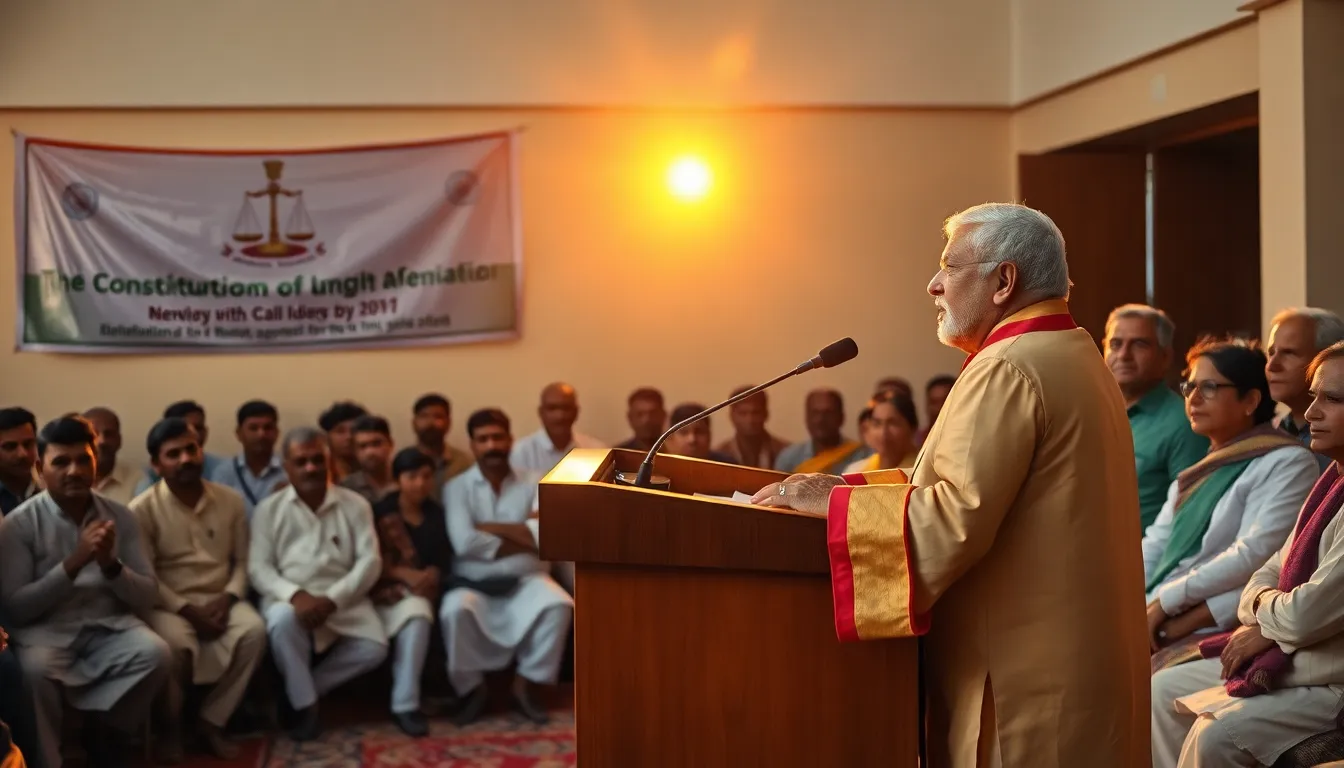In a significant address, Chief Justice of India (CJI) BR Gavai asserted that the Constitution of India is the supreme authority in the nation. He made this statement during a felicitation ceremony held by the Bar Association in his hometown, Amravati. This event took place amid rising tensions between the judiciary and the executive branches of government. CJI Gavai pointed out that while many people believe that Parliament holds supreme power, he firmly believes that it is actually the Constitution that reigns supreme.
Justice Gavai emphasized that all three branches of democracy—the legislature, the executive, and the judiciary—operate under the guidance of the Constitution. He stated, “Each wing of democracy derives its powers from and is limited by the Constitution.” This assertion highlights the importance of the Constitution in maintaining the balance of power among the different branches of government.
To further support his viewpoint, CJI Gavai referred to the Basic Structure doctrine. This principle was established by the Supreme Court in the landmark 1973 case, Kesavananda Bharati v. State of Kerala. The ruling clarified that while Parliament can amend the Constitution, it cannot alter its fundamental framework. This doctrine is crucial in ensuring that no government can exceed its constitutional limits.
The Chief Justice also discussed the role of the judiciary. He stated that judges have a duty to uphold the Constitution and protect citizens’ rights. “Independence of the judiciary is not about ruling against the government frequently. We are the custodians of the citizens’ rights and the Constitution’s core values,” he remarked. This statement reinforces the idea that judicial independence is vital for democracy.
Justice Gavai clarified that judicial decisions should be based solely on legal principles, not public opinion. He stressed, “A judge must think independently. What people will say cannot influence our decision-making.” This is an important reminder that the judiciary must remain impartial and not be swayed by external pressures.
In light of recent controversies, CJI Gavai defended the Supreme Court’s ruling against arbitrary demolitions, commonly referred to as “bulldozer justice.” He affirmed the fundamental right to shelter, stating that any demolition must follow due process, including providing a 15-day notice to the affected individuals. This approach aims to ensure that citizens are not subjected to sudden and unjust actions regarding their properties.
The Supreme Court’s ruling from November last year established that citizens’ voices cannot be silenced by threats of demolition, thus safeguarding the rule of law. Justice Gavai’s remarks come at a critical time when debates about the boundaries of judicial and executive powers are intensifying.
His emphasis on the Constitution as the foundation of Indian democracy serves as a reminder of its significance in maintaining checks and balances among different branches of government. CJI Gavai’s commitment to uphold constitutional values is essential in fostering trust in the judiciary and protecting the rights of citizens.
Reflecting on his journey, Justice Gavai shared personal anecdotes about his aspirations and his father’s dreams of him becoming a lawyer. He expressed pride in fulfilling that dream and highlighted the role of legal professionals in safeguarding democracy.
In conclusion, CJI BR Gavai’s address is a timely reminder of the importance of the Constitution in India’s democratic framework. As tensions rise between branches of government, his words reinforce the necessity of maintaining a balance of power and protecting citizens’ rights.


Leave a Reply